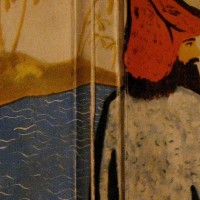Money can be defined as the general medium of exchange, or the most widely traded good. However, it is neither a consumer nor a producer good.
Suppose Robinson Crusoe, Friday, and Jackson are all on their island. Crusoe wants a rabbit from Friday’s collection, but he knows that Friday will not accept the fedora that he wishes to trade for it. Crusoe does know, however, that Friday will make the trade if he is offered tobacco instead.
Fortunately, Crusoe can trade his fedora to Jackson (who has been wanting a fedora) who in turn will give his tobacco to Crusoe. Crusoe then takes his new tobacco and trades it with Friday for a rabbit. In this scenario, tobacco was the medium of exchange. It was not demanded by Crusoe for either consumptive or productive use. Instead, it was demanded solely as a medium of exchange to facilitate a trade that could not occur in its absence.
Let us take this example further: Everyone on the island (Crusoe, Friday, and Jackson) demands tobacco. It is thus a more marketable commodity first because of the high demand it possesses in use (the island inhabitants demand it simply to smoke it). Once the island participants realize that everyone else on the island will accept tobacco in trade, tobacco begins to appear on everyone’s value scale. The demand for tobacco increases because it has developed an additional usage: the medium of exchange. This increased demand for tobacco only reinforces its marketability, again increasing its demand in a reinforcing spiral.
Note that the innovation of money comes from the seller of a niche good. While our example was limited to only three market participants, suppose that Crusoe was on an island with 100 other inhabitants. He still has his fedora to exchange for Friday’s rabbit, but he knows that Jackson is the only inhabitant of the island who has any consumptive or productive use for a fedora. This makes Crusoe the seller of a “niche good” because there are so few prospective buyers. And in our example, none of these buyers (Jackson) wants what Crusoe has to offer. It is precisely this predicament that prompts Crusoe embark on his “roundabout” process of finding a way to obtain the good he ultimately desires.
Thus, the use of money increases the number of potential trading partners by increasing reverse preferences. In so doing, it increases the sheer volume of trade. Because trade is made voluntarily, we know it benefits both parties (as no trade occurs unless both parties believe it to be mutually beneficial). Because it benefits both parties, money allows for a greater number of socially beneficial exchanges of goods to take place.
In today’s economy, money is a given–it exists in various forms and is extremely easy to obtain. But ignoring these basic principles about money can and does lead many an honest economist to grievous economic error. Regardless of how complex economic theory becomes, these principles should not be forgotten.


No comments yet.